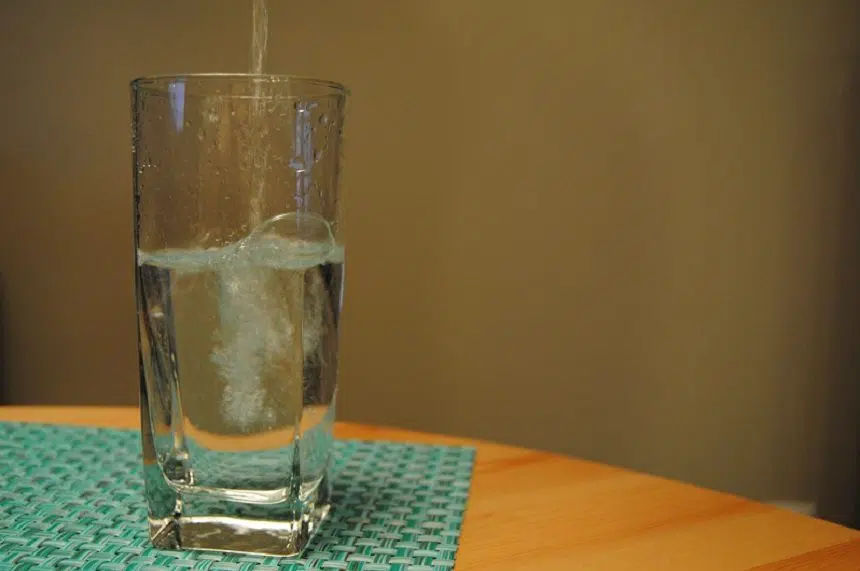Heather Dedman thinks she and her husband could handle the extra costs of getting lead pipes removed from their home, but she knows not everyone can do so.
Dedman lives in the Heritage neighbourhood in Regina and has been using a city-provided filter to try and reduce the amount of lead in her family’s water due to the pipes in their neighbourhood.
But the filter system isn’t perfect and if it’s not done right, it won’t filter the lead out of the water.
“I just had my blood tested back in February and (lead) is at a very, very low level, which I am comfortable with,” Dedman said, adding she wants the City of Regina to come back to test her water due to concerns.
The city has been replacing the lead service connections it owns throughout the city, but property owners haven’t been required to do so.
On Wednesday, executive committee voted in favour of changing the water bylaw so property owners would have to change their pipes as well if the city was doing so in that area.
The property owner would have to pay for the repairs, either upfront or in a five- or 10-year repayment plan with the city. There is also a $240 up-front administration fee for the five-year payment program. The 10-year program is available only to property owners who meet the City’s Affordable Access Program criteria.
“I think it’s good that homeowners must do the private side the same time the city is doing it. I think that that makes sense,” Dedman said. “If you take the lead out on the city side, it’s not going to help anything if the private side is still affected. It is a big expense for homeowners. I’ve been quoted anywhere from about $4,000 to $10,000. I think that depends once you dig up the ground and stuff. Older homes might need more pipe replacement.
“If this expense comes up, we will handle it. It’s not going to be the difference for us whether we can afford groceries, whether we can afford to keep the power on and stuff like that, so we’re in a privileged position where we can handle it but there’s going to be a lot of families and homeowners out there that this is going to be a huge issue for.
“With low-income families, a price tag of $10,000 over five or 10 years is still catastrophic so we really want to drive that point home and see if there is a way that we can help alleviate that for families.”
Dedman is a part of a Get The Lead Out committee which is made up of members from the Cathedral, Eastview, Lakeview and Heritage community associations.
The Cathedral neighbourhood has 936 lead service connections in it — the most for one neighbourhood in the city — followed by the Heritage neighbourhood, with 692.
Dedman said the group met with city officials Tuesday to talk about the issue, unaware the bylaw change was going to executive committee the next day.
Dedman said they would have liked to have seen a cost-sharing model between the city and homeowners rather than have the costs fully fall on the individuals.
“I don’t know how written in stone (it is),” she said. “I’m not a very political person. I don’t have a really great understanding of how city council and passing the bylaws work. I’m hoping that our community group will be able to stay in contact with the city and the other agencies that we are working with.”
She said it’s important work for the city to get rid of its lead pipes because it’s a public health issue.
“Lead in the drinking water can cause a low-level toxicity,” Dedman said. “I think historically we think of lead poisoning where people get acutely ill and they have to go to the hospital.
“Now, with the low level of lead that we are exposed to, especially in the drinking water, it’s a really insidious, kind of an invisible process where it can affect your memory, your kidneys, your heart and it’s really important for children, especially those under the age of five because it can affect their neurological development.
“You can see lower IQ scores, you can see symptoms of ADHD, behavioural changes, clumsiness so it is really important we can get the lead out so we’re not affecting our children and adults in these negative ways.”
She said one of the positives of the bylaw would be that it would give renters extra protection.
“There’s a lot of rental properties in the area. That means renters might not be aware (of lead pipes) and it acts as a safeguard as well so that owners of rental properties don’t just say they don’t want to do it. They’re not drinking the water that’s in the house so maybe it’s less important for them,” Dedman said.
And it can help keep others safe as well.
“Historically, it is lower-income families and individuals affected by environmental toxins. I think it’s really important that as a community, we are using our voices to help advocate and make these changes to get the lead out of the water faster so that we can protect more people from being exposed to it,” Dedman said.
“Its a public health thing. We are trying to protect people and their families from the lead in the water.”











